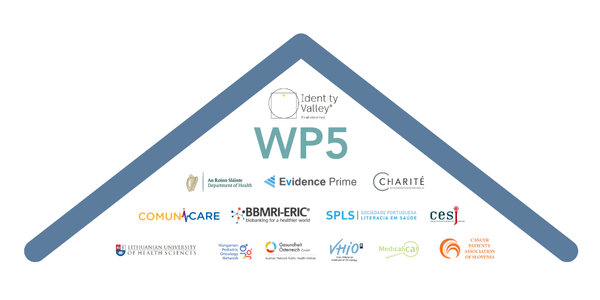At a glance
WP5 aims to define and validate high-quality criteria for cancer information provided through EU-CIP, ensuring that the portal delivers accurate, reliable, and user-friendly information adapted to diverse cultural and linguistic contexts across EU Member States.

WP5 is led by IDV and contributed to by GOEG, VHIO, HUPON, DoHIE, CESJ, LSMU, SPLS, CPAS, MESC, BIH/CHA, BBMRI-ERIC, ComCare, EVP.
The task
WP5 will conduct a comprehensive analysis of existing cancer information sources and best practices to establish a harmonised set of evidence-based quality criteria. Activities will include literature reviews, analysis of portals, and engagement of stakeholders — including patients, survivors, healthcare professionals, and health literacy experts — through focus groups, surveys, and a Delphi panel to validate the proposed criteria and achieve consensus among European experts.
WP5 will develop guidelines to ensure that all EU-CIP content meets scientific, ethical, and cultural standards. The defined criteria will support the creation of the Common Content Library and integration into national nodes, ensuring consistent and trustworthy information across the EU, alongside sustainable processes for the continuous evaluation and updating of content quality.
WP5 will also define interoperability procedures to align with the European Health Data Space (EHDS) and integration with the Knowledge Centre on Cancer (KCC) and the European Cancer Information System (ECIS). It will include developing guidelines for connecting EU-CIP nodes with existing electronic health infrastructures, addressing technical, ethical, and societal considerations. Pilots are planned to validate technical solutions and processes before broader deployment across Member States.
Deliverables will include:
- A validated set of quality criteria based on the Delphi process and stakeholder input
- Stakeholder-verified guidelines for the production and continuous review of EU-CIP content
- Practical recommendations for translation and cultural adaptation
- Tested interoperability processes.
These outputs will enable EU-CIP to provide equitable, high-quality cancer information, supporting improved health literacy, informed decision-making, and reduced disparities in access to cancer information across Europe, fully aligning with the European Cancer Mission objectives.
